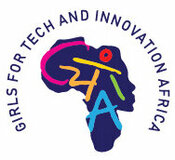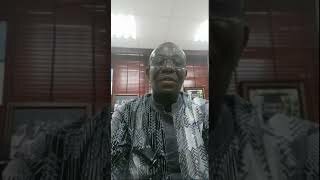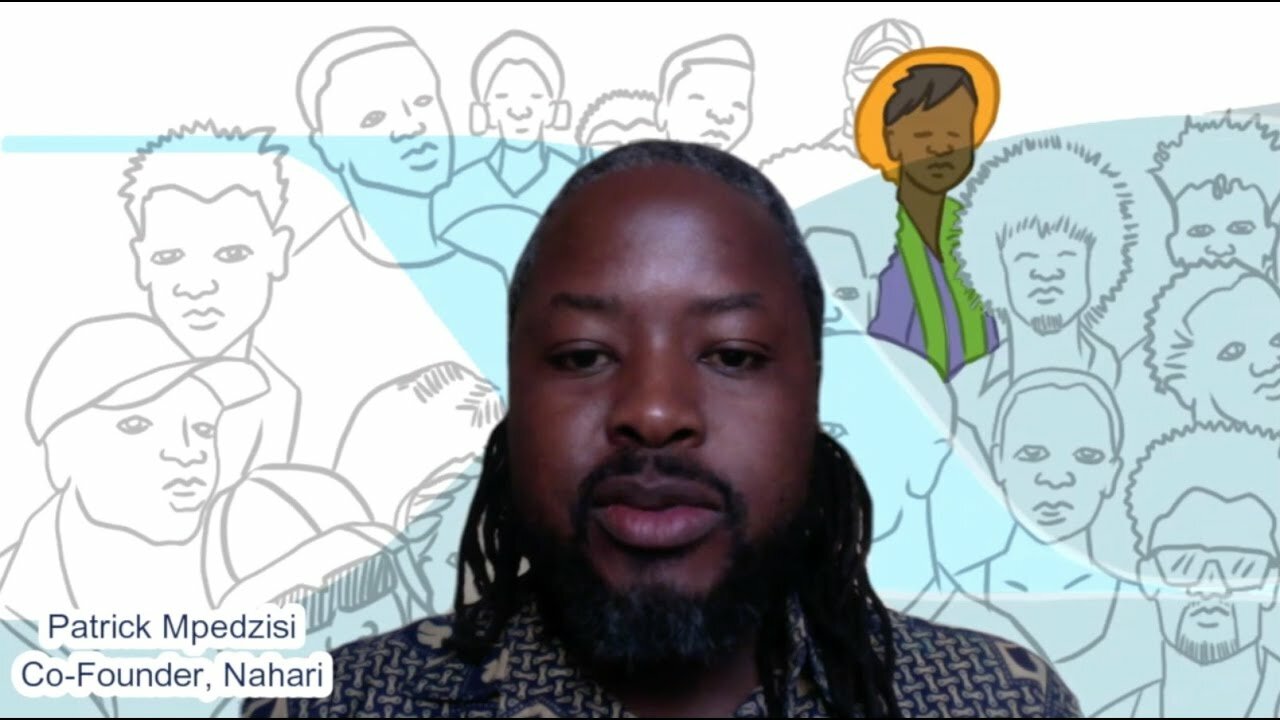Demographic Transition in Africa
How to support the harnessing of Africa’s potential demographic dividend through international collaboration
In 2019 the Global Diplomacy Lab (GDL) hosted its 10th and 11th Labs in Accra, Ghana and Berlin, Germany respectively focusing on “Global Power Shifts: Political and Economic Inclusion for the Next Generation. Collaborating to Realize the Potential of the Demographic Dividend.” The question of how to support the harnessing of Africa’s potential demographic dividend through international collaboration was the challenge of the 2019 Curriculum. Among some of the issues that were identified as challenges in fostering collaboration towards a demographic dividend in Africa were the need for strategic diversity management, trustworthy cooperation between Europe and Africa, more effective use of data and building more inclusive and equitable African cities.
Building upon this process, and the subsequently published compendium of essays on demographic dividend, Nahari Africa hosted a panel at the Rethinking Africa Convening on 25th February 2021.
To collectively document, analyze and synthesize how different types and modalities of international cooperation and collaborative approaches can be strengthened to better contribute to the successful integration of young people in Africa’s development.
The panel was focused on diving deeper into the question of the impact of Africa’s population growth on human insecurity, electoral integrity and democratic violence. The conversation highlighted the need to integrate young people in the socio-economic and political processes of countries so as to avoid the potential for the surging youth population to be destabilising, and become a burden on economic growth and public budgets.
41
Participants
Lines of Inquiry
Africa’s youth population is growing rapidly and is expected to reach over 830 million by 2050. The belief that this youth bulge will translate into a demographic dividend is the premise upon which several national and continental development policies and initiatives are built. The ‘demographic dividend’ is a period during which the proportion of working-age people is increasing relative to the rest of the population. It can contribute to the creation of the necessary savings, productive conditions, financial and social institutions, and social protection systems to accelerate progress towards the SDGs. In addition to the demographic dividend, the demographic transition has also created favourable conditions for another powerful dividend - the ‘gender dividend’. It arises from the increase in female labour-force participation, which implies overcoming discriminatory barriers against women that exist both inside and outside of the labour market.
A basic measure of success in turning the youth bulge into a demographic dividend is the youth unemployment rate. Integrating young people as effective economic citizens is critical to harnessing the demographic dividend. African countries have a time-limited opportunity to integrate this generation as economic citizens and reap the benefits before they mature and reach a nonworking age. Successful integration would result in a virtuous cycle of sustained growth on the continent. Unfortunately, while between 10 and 12 million people join the African labour force each year (33,000 youth across Africa join the search for employment every 24 hours), only approximately 3.7 million jobs are created annually. Young people not absorbed into the formal employment market are consigned to unemployment, underemployment, vulnerable employment and working poverty. The idea of the youth burden - an unemployed youth bulge failing to become a demographic dividend in countries in fragile situations - looms large.
Objectives and way ahead
Nahari Africa intends to convene a cross-sectoral community interested in the impact of the demographic transition on Africa’s development to enable them to discuss their perspectives, and, by discussing, build their knowledge and understanding of the subject. In addition, the dialogue will take into consideration four prevailing megatrends on the continent - the move to enhance integration across the continent which has been given a new impetus by the creation of the AfCTA, the covid-19 pandemic, the economic potential created by rapid urbanisation, and the potential of the Fourth Industrial Revolution (4IR) to turbocharge private-sector led development - that present opportunities that could be leveraged to enhance the integration of young people in Africa’s socio-economic and political processes.
The aim is to:
(1) Explore how South-South and North-South cooperation contributes to improving the capability of African Nations to include young people in socio-economic and political processes
(2) Explore how Private Sector Engagement and Social Entrepreneurship, a growing trend in development cooperation, can contribute to the inclusion of young people in socio-economic and political processes
(3) Examine the potential contribution of increased integration within Africa, a new dynamic on the development cooperation front, to an approach that enables inclusion of young people in socio-economic and political processes
Intended outcome
(1) Recommendations on how to strengthen international cooperation and collaborative approaches which have the potential to influence the practice of various actors of the international development cooperation community and to contribute to making interventions more effective and consistent with the goal of “leaving no one behind”
(2) Recommendations on improving South-South and North-South cooperation processes to increase their impact on African Nations
(3) Recommendations on effectively integrating to private sector engagement and social entrepreneurship in development cooperation interventions
(4) Recommendations on strategies to leverage the Africa integration process to enhance development cooperation processes
Starting the conversation
To successfully integrate young people in Africa’s socio-economic and political processes, it is important that interventions which drive economic growth, while at the same time enhancing youth agency and participation, are implemented. Countries need to ensure that interventions promote investment in human capital, foster the creation of an enabling environment for businesses to boost employment, and improve the effectiveness and credibility of their civic and government institutions. Successfully implementing these interventions would not only deliver the demographic dividend but also address high levels of economic inequality. In this sense, the success of both the global development agenda - 2030 Agenda for Sustainable Development, and the continental development agenda - Agenda 2063, is strongly bound to anticipating and planning for the effects of the demographic transition.
Are leaders guaranteeing the inclusion and well-being of Africa's youth?
In the framework of the Equity, Diversity and Belonging Week by BMW Foundation Herbert Quandt (#EDBWeek21), we hosted a session on 28th June 2021 with panellists drawn from public sector, private sector and civil society . The conversation took a multi-sectoral approach on analysing interventions for youth inclusion in African economies. It focused on the question of whether leaders are responding to the aspirations of young citizens. In case you missed the session, watch it here: |
African parliamentarians on the demographic transition
On the 5th of August 2021 the African Parliamentarians Network Against Corruption (APNAC) and Nahari Africa led a discussion on the role of parliamentarians and fostering youth development against the background of the African Union seeking to harness a demographic dividend.
Parliaments play critical role in the oversight of the executive, ensuring responsive policies and in domesticating international and continental commitments of their respective governments. With Africa’s youth population growing rapidly and expected to reach over 830 million by 2050, the African Union has responded with a policy framework meant to harness a possible demographic dividend. The ‘demographic dividend’ is a period during which the proportion of working-age people is increasing relative to the rest of the population. It can contribute to the creation of the necessary savings, productive conditions, financial and social institutions, and social protection systems to accelerate progress towards the SDGs.
In addition to the demographic dividend, the demographic transition has also created favourable conditions for another powerful dividend - the ‘gender dividend’. It arises from the increase in female labour-force participation, which implies overcoming discriminatory barriers against women that exist both inside and outside of the labour market.
Securing such a dividend would require strategic oversight from parliamentary bodies to ensure that not only are governments delivering on the AU commitments but that young people’s participation and inclusion in Africa’s development is guaranteed. For instance the 1 Million By 2021 Initiative sought to provide at least 1 million education, employment, entrepreneurship and engagement opportunities to African youth. APNAC in working towards its mission can ensure greater accountability by governments through better alignment with the AU in policy-making, more effective use of resources and clearer strategies for guaranteeing inclusion and well-being of Africa’s youth. We heard from parliamentarians from across Africa on their interventions towards harnessing a demographic dividend.
The Panel
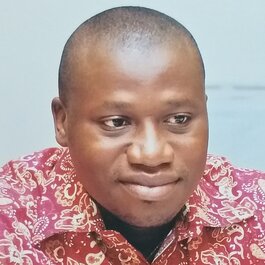
Fabrice Fifonsi - APNAC
Fabrice Fifonsi - APNAC
Fabrice Fifonsi is a visionary leader, change agent, and good governance advocate. He has extensive knowledge and experience in design thinking, development, implementation, and management, as well as overall organizational leadership. He holds a Master of Arts degree in Sociology and Anthropology. With established notoriety as a Governance, Anti-corruption, and Parliamentary Strengthening Expert for the past 10 years, Mr. Fifonsi currently serves as the Executive Director at the Secretariat of the African Parliamentarians’ Network Against Corruption (APNAC), the lead African network of parliamentarians committed to fighting corruption and promoting good governance.
https://apnacafrica.org/en_US/

Hon. Tatenda Annastacia Mavetera - Zimbabwe
Hon. Tatenda Annastacia Mavetera - Zimbabwe
Hon. Mavetera is a member of the National Assembly of Zimbabwe. She was first elected as a member of parliament in 2018, at the age of 32. As a provincial and national member of the Zimbabwe Youth Council Board Hon. Mavetera joined ZANU PF at an early age and rose through the ranks of the provincial structure of the party, serving as Secretary for Indigenization. Her current position is that aof the Assistant Speaker for the Parliament, she acts as the Secretary-General for the APNAC Zimbabwe Chapter, is a board member of the African Women Leaders Network (AWLN) Zimbabwe chapter and Youth Caucas MP for Seke Chikomba Constituency. Her areas of interest are gender, economics and youth issues.
Hon. Mavetera has participated in the PYPA-Program of Young Women in Politics Africa, holds a BSC in Management and Marketing by the Women’s University and a Masters in Strategic Marketing of Midlands State University.
HON MAVETERA TATENDA ANNASTACIA - Parliament of Zimbabwe
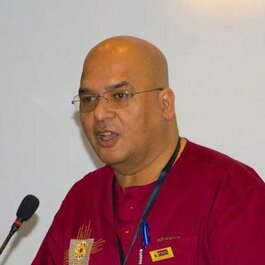
Hon. Ahmed Shakeel Shabbir - Kenya
Hon. Ahmed Shakeel Shabbir - Kenya
Hon. Shabbir, CBS, MP, is the current Member of Parliament - Kisumu East Constituency. He is a third time Member of Parliament having been first elected in 2007. Hon. Shabbir has also served as the Mayor of Kisumu Municipality (currently a city) between 2000 – 2002 and 2004 – 2006. As a mayor, of Kisumu Municipality he, improved the revenue base for the municipality and turned it into one of the cleanest Municipality in East Africa.
Hon. Shabbir is also currently serving as a senior member of the Parliamentary Committee of Finance, Planning and Trade, a position he has held since 2007. He also served as the Vice Chair of Parliamentary Committee on Local Authorities between 2008 → 2013 and made substantial contribution to the establishment of County Governments through development and enactment of Policy and legislations affecting county governments.
He is passionate about the fight against corruption and is the current Chairman of the African Parliamentarians Network Against Corruption – Kenya. He has been involved in a wide-ranging policy and legislative research on anti-corruption areas. He made substantial contribution to the enactment of Leadership and Integrity Act 2012, Access to Information Act, 2015, Bribery Act 2016, Proceeds of Crime and Anti-Money Laundering, Election Campaign Financing Act 2014 and review of the Anti- Corruption and Economic Crimes Act 2003 and Public Officer Ethics Act 2003 among other attendant regulations accompanying these statutes. He also participated in the development of the United Nations Convention Against Corruption (UNCAC) Kenya review report process in 2014/2015.
Hon. Shabbir is a strong proponent for the Open Government Partnership (OGP), co-creation agenda in Kenya. Has made substantial contribution in the development and achievements of the Kenya OGP National Action Plan III through the public participation commitment area which charges Parliament with the responsibility of establishing platforms that will contribute to legislative openness.
He holds a Master of Arts Degree in Political Science – Maseno University, Masters of Business Administration (MBA) - Henley College, Bachelor of Commerce – Makerere University and Diploma in Accountancy - Middlese Polytechnic, London.
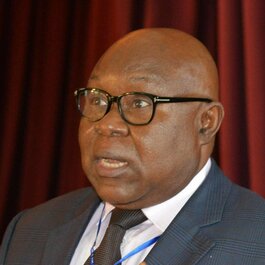
Hon. Jean-Baptiste Kumasamba Olom - Democratic Republic of the Congo
Hon. Jean-Baptiste Kumasamba Olom - Democratic Republic of the Congo
Hon. Jean-Baptiste Kumasamba Olom is a native of DRC and a graduate of the Faculty of Economics, Management and Social Sciences of the University of Liège, in Business Administration, "Finance" orientation. He was elected as National Deputy in 2011 for the 2011-2016 legislature in the electoral constituency/district of Idiofa, serving as a member of the Economic, Financial and Budgetary Control Commission of the National Assembly of the Democratic Republic of the Congo. He is a teacher (head of work) at the Department of Commercial and Administrative Sciences of the Institut Supérieur Pédagogique of Gombe in Kinshasa, but also Financial Advisor to the Honorable Quaestor of the National Assembly of the DRC.
Hon. Kumasambe Olom authored the book Practice of parliamentary control of public finances at the National Assembly of the DRC, 1960-2016 and is the co-author a Collection of Legal Instruments for Combating Corruption, published in 2016.

Patrick Mpedzisi - Nahari Africa
Patrick Mpedzisi - Nahari Africa
Patrick is an organisational development consultant with over 20 years’ experience being located at different times in Kenya, Zimbabwe and South Africa. During this time, he managed to open various processes for civil society organisations in Africa to engage regional processes including the African Union, African Peer Review Mechanism, Pan African Parliament, etc. He has managed major civil society projects, led regional campaigns and built civil society capacities across the continent. He has moderated high level dialogues at intergovernmental levels (AU, SADC, UN), Business platforms and parliamentary (inter as well as intra) processes. He is a co-founder of Nahari Africa.
How to get engaged
If you should be interested in taking part in this dialogue, please approach Elizabeth Maloba and Patrick Mpedzisi at africa.nahari@gmail.com.
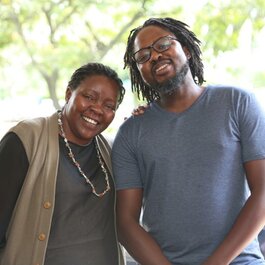
Elizabeth Maloba and Patrick Mpedzisi, Nahari Africa
How to support
We welcome partners who assist our sustainability by lending their support to our activities and events. Each event may have different partners and we may have individual engagements with each partner, so please contact us, if you are interested.
Current partners are (as of August 2021):
